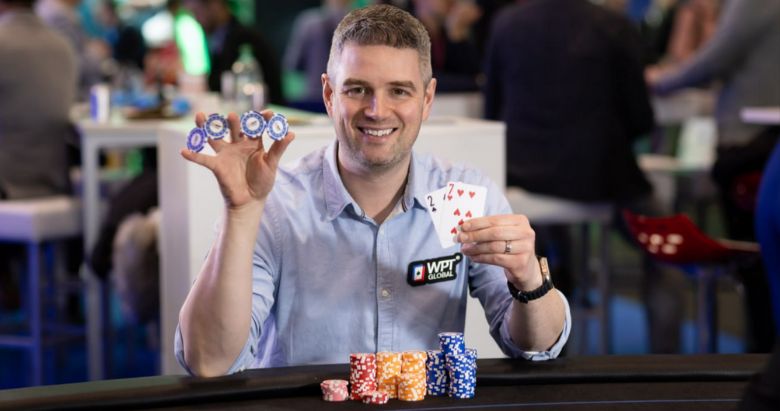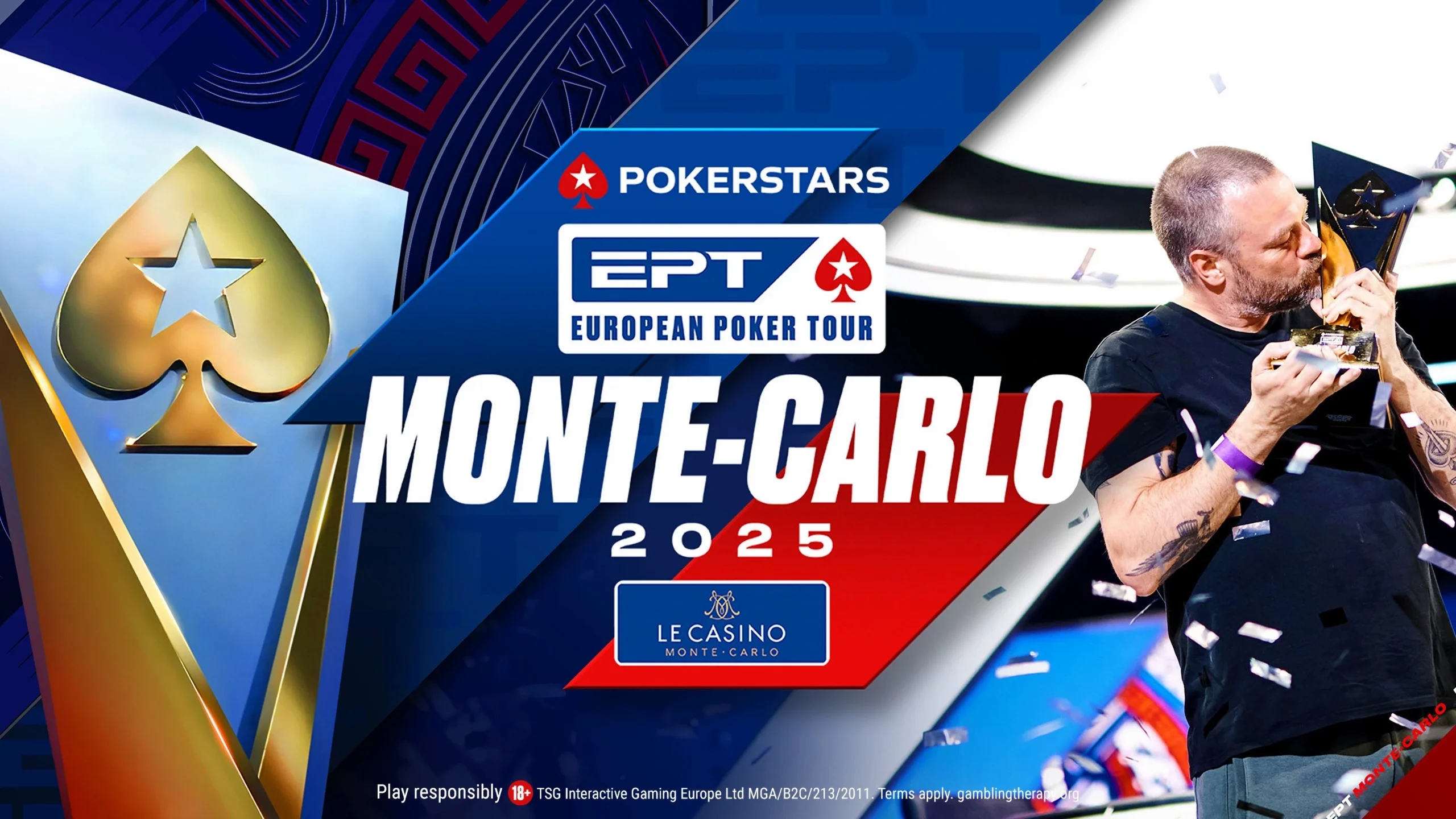WPT Global’s Alex Scott on Transparency, Skill Labels, and Reinventing Rakeback

- Fact Checked by: PokerListings
- Last updated on: September 26, 2024 · 5 minutes to read
WPT Global is currently hosting its Summer Festival 2024 online series and has just announced the dates for their upcoming Fall Festival, set to run from September 8 to 30. We thought it was the right moment to catch up with WPT Global on everything what is going on around their brand.
Operator: WPT Global
Alex Scott, the president of WPT Global, plays a pivotal role in ensuring that the company’s message is effectively communicated across the internet. His active presence online is a testament to his commitment to making sure WPT Global’s story is told clearly and accurately. But even for us, sometimes it’s better to ask for a little bit more information when it comes to certain information brought out into the world.
We caught up with Alex Scott, which has been a while since last we spoke to him! Previously, we had spoken to him at the start of this year in terms of an article divided in part I, and part II.
PokerListings: As we know, you are an advocate for transparency in the poker industry. Does transparency include free access for players to their skill label (pro / non-pro) in WPT Global lobby or account details?
Alex Scott: In short yes. While we’ve been very transparent so far about FairGame (our AI-driven ecology management system which ensures we have the most beatable and sustainable games) and what it does, we can definitely be even more open about it, and we have projects on our roadmap that will make it more visible and easier for players to understand.
What is FairGame? ⚖️@AlexScott72o is here to give you the lowdown on how we use AI to bring you the juiciest games around! 🧃 pic.twitter.com/1tTnT9klQs
— WPT Global (@wpt_global) August 14, 2024
PokerListings: We saw your “Skill Level FAQ” and noticed that answers for “How is skill level determined at each stake?” are a little contradictory. They start with “The system classifies skill levels separately at each stake” but are followed by “If a player is labeled PRO/high skill at any stake, they will be automatically labeled high skill at all lower stakes.” And below in the text, this rule doesn’t work vice versa. Some players can argue that being pro/highly skilled at one limit does not mean you are good at any other, whether it is higher or lower. So, why is it designed like that? Do you believe it is fair?
Alex Scott: Yes, I believe it is fair. The assumption here is that a player who is categorized as an expert, for example, at 10/20/40(5) stakes, would also be an expert at lower stakes such as 5/10/20(2). While there might be cases where a player is able to beat higher stakes but not lower stakes, these are the exception and not the rule.
PokerListings: Let’s return to the Two Plus Two forum. You wrote there a few times (see this tread) that WPT Global has “always discouraged affiliates from offering rakeback and warned that if they did offer it, it would likely cause problems that might result in some players being untagged, commission changes being made, or the closure of affiliate accounts entirely“.
Why does your team so actively oppose affiliates rewarding their players in the form of rakeback?
Alex Scott: We are spending more, per player, than anyone else right now, but we want to be smart about how we spend that money and not simply waste it. We intend for our marketing spend to be ‘win/win’ – in other words, players and/or the poker community benefits, and so do we. If it’s one-sided, it’s not sustainable.
The purpose of any promotional spend is to reward players for changing their behavior in some way – perhaps it is trying a game type that they haven’t tried before, perhaps it is contributing to the liquidity of a game which is short on players, perhaps it is moving more of their volume to WPT Global from other sites, or perhaps it is starting new tables.
Straight rakeback without any conditions is a terrible way of achieving this and we’ve seen what it has done to the games at PokerStars and GGPoker – they’re practically impossible to beat these days.
With plain rakeback the site is paying to reward players for doing something they would do anyway. It tends to attract expert players, some of whom make significant positive contributions to the business, and some of whom don’t – but rewards both categories equally. In WPT Global’s case, we knew that these rakeback deals would reward players who were already crushing the games for 20bb/100 or more. This is way more than they can win anywhere else, even after rakeback and rewards. It was wasting money.
We intend to spend a lot more money, but we want to reinvent rakeback, not just do what has always been done before. We want to focus our spend in ways that will grow the game, bring in new players, and reward those who contribute the most to the health of our player pool, by starting games, keeping tables running, giving action and making WPT Global a fun place to play. These players are the lifeblood of poker and they deserve to be treated well.
PokerListings: Finally, you also stated that “WPT Global has never offered rakeback, outside of a few small/temporary/limited experiments (source).
But shortly after your post was published, on July 29th, a rakeback program named Poker Rewards Program appeared on the WPT Global website without an expiration date. Is this program a temporary experiment too, or is it here to stay?
Alex Scott: Pretty much everything we do is an experiment and is subject to change. Our previous experiments strongly suggest that the first phase of our new rewards program will be a success, but as we learn from it, we will revise and improve it.
Right now, the rewards program incentivizes players to start new games and keep games running. Over time we may introduce incentives for other positive behaviors, so that players who make healthy contributions and help us to grow benefit from doing so.
-
Stake.US Poker4.3
- Rakeback 5%
- $55 Stake Cash + 260K Gold Coins
T&Cs Apply | Play Responsibly | GambleAware
18+ | Play Responsibly | T&C Apply
-
Appeak Poker4.1
- 1,000 Chips Daily
- FREE 5,000 Chips
T&Cs Apply | Play Responsibly | GambleAware
T&Cs Apply | Play Responsibly | GambleAware
-
- 150% up to 25 SC
T&Cs Apply | Play Responsibly | GambleAware
Terms & Conditions apply
-
- 5%
- 200% Gold on 1st Purchase
T&Cs Apply | Play Responsibly | GambleAware
Terms & Conditions apply
-
- 2,500 Gold Coins + 0.50 Sweeps Coins
T&Cs Apply | Play Responsibly | GambleAware
18+ | Play Responsibly | T&C Apply









